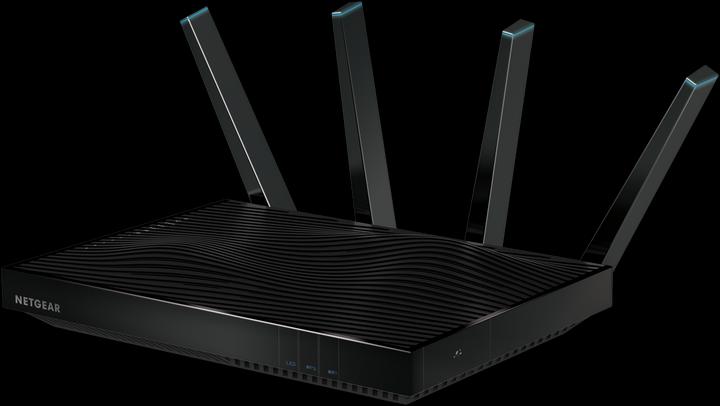
Netgear R8500 Nighthawk X8, ac4334/n1000

Netgear R8500 Nighthawk X8, ac4334/n1000
This should be possible without any problems. Log in to the router login, under the extended icon, then under Security there is a Schedule tab where you can set the activation and deactivation.
Just put Netgear_ac in good ...
Nighthawk works reliably with all common devices. I wouldn't have any concerns about that... it has 3 different bandwidths. I have not had to adjust anything. Do the internal speed test (also with devices accessing the internet) and you have villeroder adjusted speed for x devices... it's worth it... r
Nothing to do with DSL. The router's "aggregate" option is used to double the speed of the connection with e.g. a NAS (a set of external hard disks connected directly to your network to store music, films or other data and possibly to function as a mail server, web server, surveillance, etc.) equipped with a network adapter. A NAS (a set of external hard disks connected directly to your network to store music, films or other data and possibly to function as a mail server, web server, surveillance server, etc.) also has two LAN ports that can be combined into one. To simplify, instead of exchanging data with the NAS at 1Gb/sec you will have 2 Gb/sec. Two network cables will then connect the router to the NAS. For this to work, you need to do a little configuration in the router software and the NAS software. I hope I haven't been too complicated...
Hello, 1) Netgear parental control has nothing to do with the router type, it is the same for all Netgear routes. 2) Configuration is basically done via web: https://netgear.opendns.com/sign_in.php 3) Exceptions based on MAC addresses are not possible as far as I know (question above) 4) What you can do is the following (always all devices): - you can allow/deny access for 59 different categories - define arbitrary time windows for these categories: e.g. you can "allow everything" at night and restrict it during the day - define general black-/whitelists for domains - allow typo exceptions, e.g. for VPN, shared directories, local NAS or printers - Define a "bypass account", which always allows full internet access (but then you also have to log in via an app).
Yes, that is possible.
Mine is the same as yours, ours is probably just the European version as opposed to the North American version...
The PS4 only reaches 48mbits because you only get this much from the cable network provider (Swisscom, UPC, etc.). For WiFi, a firmware update of the router may help.
So your internet at home is bad in that you have almost no wifi signal in the house? Because otherwise it only "improves" your internet to a limited extent....
10 of 10 questions